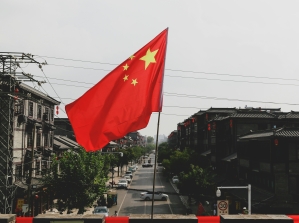
In his incisive Christianity Today article titled “Xi Jinping Is Not Trying to Make Christianity More Chinese,” Purdue University professor Fenggang Yang draws a distinction between Sinicization, or the cultural adaptation of religion to Chinese culture, and what he calls “Chinafication,” a more literal translation of the Chinese term Zhongguo hua (中国化) used in the current “Sinicization of religion” campaign.
The latter term, according to Yang, most clearly represents the aims of the campaign, which is more about political control than social assimilation or theological contextualization. Yang writes:
Western media and academia commonly translate this term as “Sinicization,” but this is interpretive, inaccurate, and misleading. Sinicization means assimilation into Chinese culture, especially the language, customs, norms, and national identity of the Han majority in China proper. However, the primary goal of Zhongguo hua is not cultural assimilation but political domestication—to ensure submission to the Chinese Communist party-state.
Political Control
As Yang points out, the fact that even Daoism—a religion indigenous to China—is subject to the demands of the campaign betrays the true motive of a regime that has made control over every area of society a hallmark of its governance. Renovating mosques to make them appear more “Chinese,” pulling down crosses from churches, and encouraging indigenous hymnology and theological literature may constitute some of the more public features of the campaign, but from a political standpoint, what is happening in the sphere of religion is not unique. No social group or organization can be allowed to function outside Party control.
The Sinicization campaign, along with a host of new regulations and the reorganization of the religious affairs bureaucracy in 2018, incorporating what had been the State Administration for Religious Affairs directly into the Party’s United Front Work Department, are the regime’s strategies for reining in religious communities whose foreign connections, competing ideologies, and ability to influence large numbers of citizens pose a potential challenge to the Party’s nonnegotiable grip on society.
Competing Traditions
Particularly for those coming from a tradition that assumes separation of church and state, China’s Sinicization campaign appears as little more than window dressing on what is otherwise a pure power play.
If one takes Xi Jinping’s pronouncements about Chinese culture and national rejuvenation seriously, however, it is not so easy to simply write off the Sinicization campaign as merely another instrument of control. Given China’s long tradition of state domination of religion, it may be argued that an enduring feature of Chinese political culture is the state’s prerogative to determine which religious teachings will be tolerated and to bestow legitimacy upon those who are allowed to propagate them, with the understanding that religious traditions outside this government-constructed box are illegal. Foreign-supported religious have long been suspect and have been excluded or only reluctantly tolerated for much of China’s history.
Cultural and Political Symbiosis
In this sense, the cultural and political aspects of the Sinicization campaign go hand in hand. At its core, the campaign is all about political control. Yet, given China’s culture of political dominance, it is also very much about culture—a culture of obedience in which religion serves the interests of the state, a culture of conformity in which religion is expected to uphold those traditions the state finds useful for molding society, and a culture of deference with no room for parallel structures that could potentially compete for the loyalty of the governed.
The state retains the right to appropriate religious ideas and symbols for its own purposes. To the extent that Christianity fulfills these cultural expectations, it may be seen as having a place within the culture. Otherwise, it is considered an outlier.
Navigating Cultural Expectations
Understanding this cultural imperative does not necessarily make the current campaign any more legitimate. But it can shed some light on the perennial struggle by Chinese Christians not only to engage in appropriate cultural adaptation and contextualization, which Yang argues has been successfully underway within the Chinese church for some time, but also to articulate Christianity’s place within a political culture that has, time and again, warmed to certain aspects of the faith that seemed to be “good for China,” only to turn against the church when it was perceived as a threat to the established order.
For those seeking to partner with the church in China, it is a reminder that our narratives about where we fit within this mix have often overlooked important underlying cultural assumptions about the appropriate role of religion in the Chinese state. It is also a reminder that our involvement changes the equation for Chinese believers, impacting how they and their faith are perceived within the larger society.
Those of us who are not mainland Chinese may have our own view—and a solid theology to back it up—of how the church in China ought to be allowed to operate. But our stories are very different.
While we may have a role to play, we should be careful to follow the lead of our brothers and sisters in China as they navigate their own shifting cultural landscape.
Originally published by ChinaSource. Used with permission.
Dr. Brent Fulton is the founder of ChinaSource and served as its first president until 2019. Prior to that, he served as the managing director of the Institute for Chinese Studies at Wheaton College, and before that as founding US director of China Ministries International and the English publications editor for the Chinese Church Research Center in Hong Kong. Dr. Fulton holds MA and PhD degrees in political science from the University of Southern California and a BA in radio-TV-film from Messiah College. Currently, Dr. Fulton facilitates a network of member care professionals serving missionaries sent out from China and also consults with other organizations on the impact of China's religious policy.





